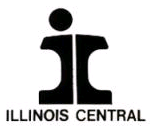James Boyle’s Deconstructing Stupidity column in the Financial Times has gotten lots of well-deserved linkage. Unfortunately that linkage is almost completely devoid of analysis, perhaps excepting posts from Karl-Friedrich Lenz and Donna Wentworth.
Too bad, as Boyle makes a couple of interesting claims. The first is that for intellectual property “our policy-process is almost evidence-free.” Or worse, decisions run contrary to available evidence, as Boyle explored in more depth in a column on database rights last November. However, Boyle implies that there is something special about intellectual property policy (emphasis added):
Since only about 4 per cent of copyrighted works more than 20 years old are commercially available, this locks up 96 per cent of 20th century culture to benefit 4 per cent. The harm to the public is huge, the benefit to authors, tiny. In any other field, the officials responsible would be fired. Not here.
I wish IP policymakers were particularly stupid and immune to the consequences of their decisions as compared to policymakers in other fields. Unfortunately the same bad decisions get made again and again, regardless of contrary evidence, in field after field, at least in those where decisions are political. Three examples off the top of my head:
I could make this list very long and I’m sure you can think of many other cases.
What to do about it? The Journal of the American Planning Association paper linked directly above wants malpractice for planners:
The policy implications of our findings are clear. First, the findings show that a major planning and policy problem—namely misinformation—exists for this highly expensive field of public policy. Second, the size and perseverance over time of the problem of misinformation indicate that it will not go away by merely pointing out its existence and appealing to the good will of project promoters and planners to make more accurate forecasts. The problem of misinformation is an issue of power and profit and must be dealt with as such, using the mechanisms of transparency and accountability we commonly use in liberal democracies to mitigate rent-seeking behavior and the misuse of power. To the extent that planners partake in rent-seeking behavior and misuse of power, this may be seen as a violation of their code of ethics—that is, malpractice. Such malpractice should be taken seriously by the responsible institutions.
Failing to do so amounts to not taking the profession of planning seriously.
Many of the authors’ suggestions may improve the situation and some could be applied to other areas of political decisionmaking. I’ll also take the opportunity to flog yet again policy markets. See the last paragraph of this post for more links and explanation.
Another suggestion is to simply reduce the scope of political decisionmaking. However, this is rarely a popular strategy. “Do something” is always the order of the day. Regardless of how ill considered something may be it is always more appealing than doing nothing. In the case of IP (how about Innovation Policy, there’s a non-pejorative repurposing of the acronym we can all agree on–turns out it is already in pretty wide use, though only 123,000 hits on Google versus 70,200,000 for intellectual property) that means extending copyright terms, expanding the scope of patents and of course more draconian enforcement. Who put the government in my bedroomgizmo?
Another interesting claim from Boyle:
To some the answer is obvious: corporate capture of the decision making process. This is a nicely cynical conclusion. But wait. There are economic interests on both sides. The film and music industries are tiny compared the consumer electronics industry. Yet copyright law dances to the tune played by the former, not the latter.
I suspect capture is not a paradoxical explanation of IP. Rights holders have a very concentrated interest in innovation policy decisions, the consumer electronics industry, much less so. A thought experiment demonstrates this: If tomorrow all works older than twenty years fell into the public domain, some rights holders of the freed works (a subset of the 4% available commercially!) would experience sharply reduced income as licensing revenues disappeared and very cheap copies came onto the market. Would you run out and buy more consumer electronics as a result? Eventually you might increase consumption of consumer electronics as a result of the availability of more and cheaper content, but I doubt it is something consumer electronics companies would count on.
Although I suspect capture is an important part of the explanation for the current dreadful state of innovation policy, Boyle does an excellent job of explaining some additional factors, including maximalism, roughly equivalent to the “do something” political imperative, authorial romance, and changes in the composition of those directly affected by IP law.
I believe that like maximalism, various romances (delusions) are at the heart of public acceptance of demonstrably failed policies. Boyle mentions in passing that many delusions are honestly held rather than being the result of corruption. I fear that this only makes positive change via politics more difficult.


